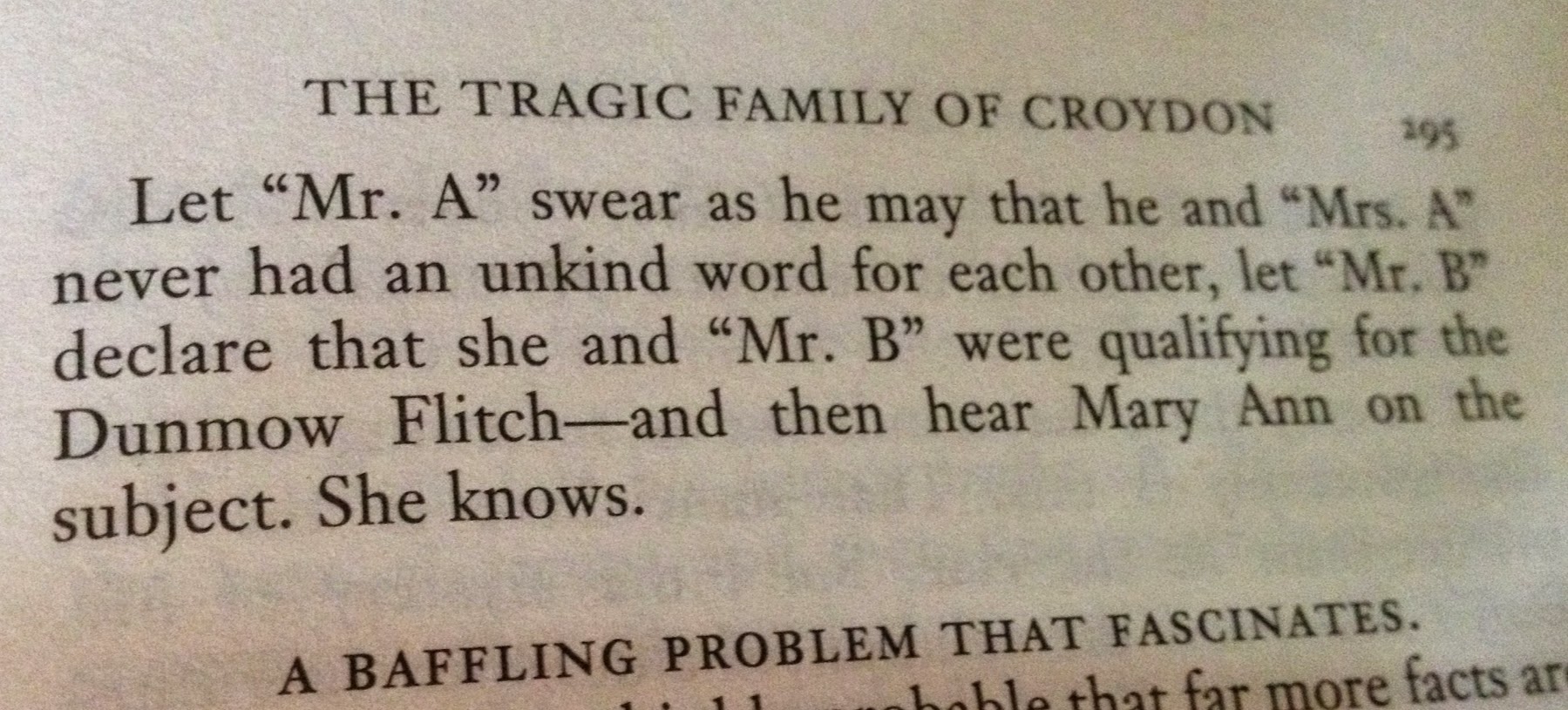Question in an Agatha Christie article
I am currently reading a newspaper article by Agatha Christie. The article was included in Detection Club book SIX AGAINST THE YARD and was about a serial poisoning case. And in the article Agatha Christie mentioned a name "Mary Ann". The name has no relationship to the murder case and I was wondering whether it is some kind of idiom? I attach the paragraph in the pictures below. Thank you very much for your help.






Comments